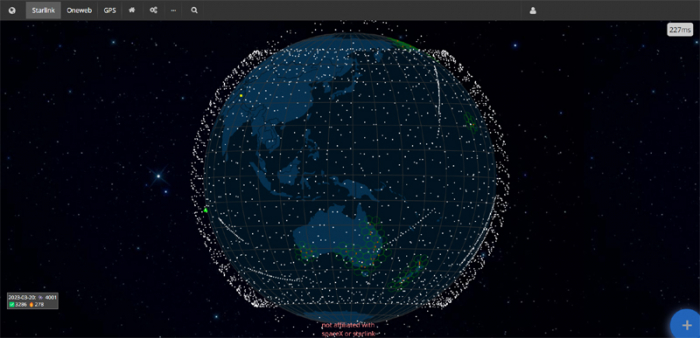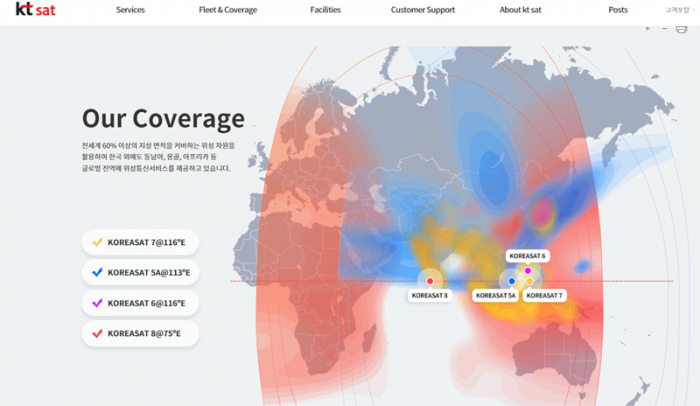Aerospace & Defense
Elon Musk’s SpaceX set for tie-up with KT SAT for Starlink service in Korea
SpaceX has established Starlink’s Korean office with a view to offering services as early as the second quarter
By Mar 21, 2023 (Gmt+09:00)
1
Min read
Most Read
LG Chem to sell water filter business to Glenwood PE for $692 million


KT&G eyes overseas M&A after rejecting activist fund's offer


Kyobo Life poised to buy Japan’s SBI Group-owned savings bank


StockX in merger talks with Naver’s online reseller Kream


Meritz backs half of ex-manager’s $210 mn hedge fund



SpaceX, the rocket and spacecraft manufacturer founded by Tesla Inc. Chief Executive Elon Musk, will likely join forces with KT Corp. to launch its low-earth orbit satellite communication service Starlink in South Korea.
KT SAT, the Korean telecom giant’s satellite service operator, is in talks with SpaceX for a Starlink service by the end of the first half of this year, industry sources said on Tuesday.
SpaceX, which plans to launch a satellite internet service in Korea, applied for business registration with the Korean government in January. On March 8, it established its Korean office, Starlink Korea LLC, with a view to offering services as early as the second quarter.
KT SAT currently operates its own geostationary satellites, Mugunghwa, for satellite communication services in Korea. Its services are primarily used by the military, government agencies, broadcasters, ships and offshore facilities.

Operating at an altitude of 35,000 km, KT’s geostationary satellites provide stable but relatively slow communication services.
By contrast, Starlink’s low-earth orbit satellites, with an altitude of 330-570 km, offer faster data transmission – a download speed of 50-250 megabits per second and an upload speed of 10-20 Mbps.
However, the coverage area is much smaller, requiring more satellites to be deployed for meaningful coverage, industry officials said.
In Korea, Starlink's services will be price competitive compared with local geostationary satellite services, which cost around 1 million won ($765) a month.
Starlink’s monthly fee will likely hover around $110, according to industry watchers.
Write to Sang-eun Lucia Lee at selee@hankyung.com
In-Soo Nam edited this article.
More to Read
-
 Aerospace & DefenseKorea's SeAh poised to supply satellite parts to SpaceX
Aerospace & DefenseKorea's SeAh poised to supply satellite parts to SpaceXFeb 27, 2023 (Gmt+09:00)
2 Min read -
 Business & PoliticsTesla’s Musk names Korea among top candidate sites for Gigafactory
Business & PoliticsTesla’s Musk names Korea among top candidate sites for GigafactoryNov 23, 2022 (Gmt+09:00)
2 Min read -
 Aerospace & DefenseKorea Aerospace Industries, Airbus to jointly enter satellite business
Aerospace & DefenseKorea Aerospace Industries, Airbus to jointly enter satellite businessOct 31, 2021 (Gmt+09:00)
2 Min read -
 Aerospace & DefenseSpaceX to launch S.Korea’s next-generation satellite
Aerospace & DefenseSpaceX to launch S.Korea’s next-generation satelliteJul 19, 2021 (Gmt+09:00)
2 Min read
Comment 0
LOG IN


